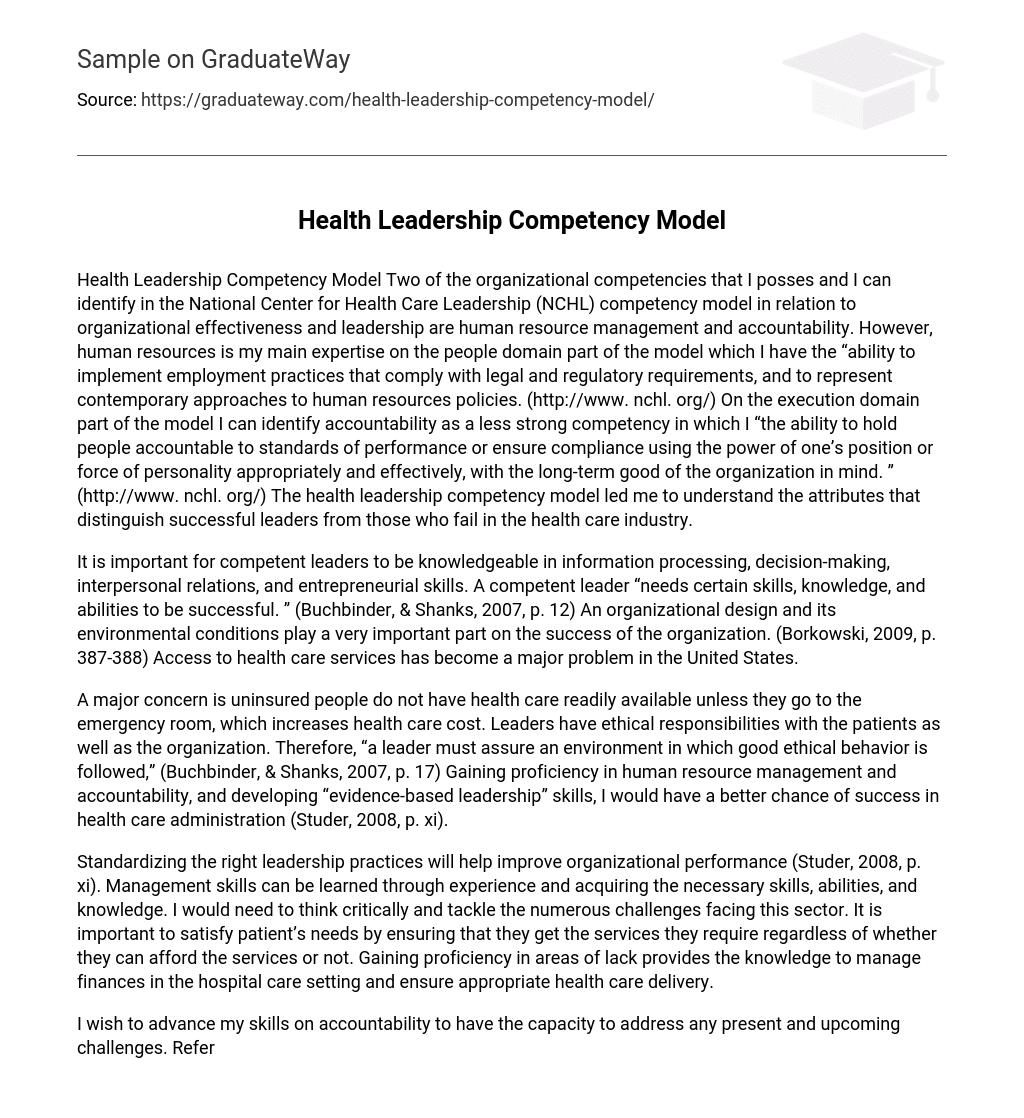In terms of organizational effectiveness and leadership, two competencies that I have and can recognize in the National Center for Health Care Leadership (NCHL) competency model are human resource management and accountability. My primary area of expertise is in human resources, particularly within the people domain of the model. I possess the capability to enforce employment practices that adhere to legal and regulatory obligations, while also embracing modern approaches to human resources policies.
Within the execution domain of the model, accountability is a competency that is not very strong. It involves the ability to enforce standards of performance or ensure compliance through one’s position or personality, while considering the long-term benefit of the organization.
The health leadership competency model revealed the qualities that set successful leaders in the health care industry apart from those who fail. It is crucial for leaders to possess knowledge in information processing, decision-making, interpersonal relations, and entrepreneurial skills. According to Buchbinder and Shanks (2007), a competent leader must have specific skills, knowledge, and abilities to achieve success. The organizational design and external factors significantly impact the organization’s success (Borkowski, 2009).
The lack of access to healthcare in the United States is a significant issue. It is a major concern that individuals without insurance can only receive medical treatment at emergency rooms, which leads to higher costs. Both patients and organizations have expectations for leaders to fulfill their ethical obligations. Therefore, it is crucial for leaders to establish an environment that promotes ethical behavior (Buchbinder & Shanks, 2007, p. 17). To succeed in healthcare administration, acquiring expertise in human resource management and accountability while also developing skills in “evidence-based leadership” (Studer, 2008, p. xi) is important.
It is essential to standardize the correct leadership practices in order to improve organizational performance (Studer, 2008, p. xi). Gaining expertise in management skills can be accomplished through experience and acquiring the necessary abilities and knowledge. To tackle the diverse challenges within this domain, critical thinking is crucial. Ensuring that patients receive necessary services regardless of their ability to pay is of utmost importance.
Gaining expertise in areas where I lack knowledge empowers me to effectively manage finances in the hospital care setting and ensure the delivery of appropriate health care. My goal is to enhance my accountability skills so that I can confidently handle any current or future challenges that may arise.
References
- Buchbinder, S. B. , & Shanks, N. H. (2007). Introduction to health care management. Sudbury, MA: Jones and Bartlett.
- Borkowski, N. (2009). Organizational behavior, theory, and design in health care.
- Sudbury, MA: Studer, Q. (2008). Results that last. Hoboken, NJ: Wiley.
- Jones and Bartlett. National Center for Healthcare Leadership (2012). NCHL health leadership competency model. Retrieved on June 28, 2012 from http://www. nchl. org/





